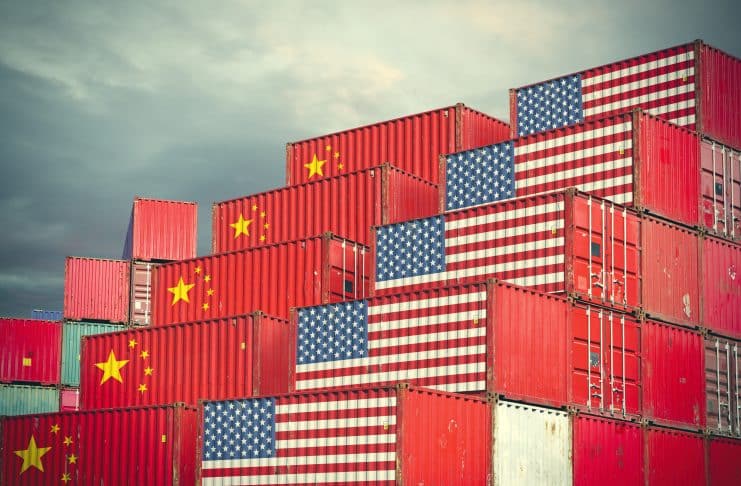Both major political parties and official Washington as a whole have gone back to the future on tariffs. Where once barriers to trade were (rightly) seen as taxes by another name and crony capitalism at its worst, today, tariffs are lauded as the greatest bulwark against globalism, elites, and other bogeymen.
Politicians, great and small, have turned themselves inside out to defend the new protectionism, few more gaudily, but without a trace of irony, than Florida Sen. Marco Rubio.
As Reason's Eric Boehm writes, there was a time – not that long ago – when Rubio and others on Team Red understood that tariffs are bad economic policy. But when the party winds changed from (mostly) free markets to Trumpish populism, Rubio trimmed his sails along with the rest:
The once-independent-minded senator from Florida has recently gone all-in on nationalist economics—presumably in an attempt to flatter Trump, a man Rubio once called a “dangerous con man.” The senator has authored other essays recently advocating for industrial policy (he supports the “right” kind of industrial policy, which would of course be very different from the wrong kind of industrial policy President Joe Biden is pursuing, even though it's unclear how they would actually differ) and has publicly pushed back at critics who have called out his economic fallacies.
Let's be blunt: Rubio was either telling massive fibs about the benefits of free trade back in the day, or he's telling even bigger fibs about protectionism today. It's a damning look either way, but one that most politicians on the right and left have adopted…most likely, to preserve their “relevance” (but not their dignity).
If we accept that the majority of official Washington is merely trying to fit in rather than lead or, heaven forbid, think independently, the question of who really pays for tariffs remains.
As the Petersen Institute reminds us, it's the American people. And more importantly, the working class people in both parties say they cherish, admire, and want to see flourish (so pile of the tariffs). Regarding Trump's proposal in particular (which includes extending the 2017 tax cuts), the Institute says:
[Trump] proposes extending expiring tax cuts from 2017 and has also suggested possible new rounds of tax cuts. At the same time, he has proposed a ten percent “across- the -board” tariff and a 60 percent or more tariff on imports from China. Together, these policy steps would amount to regressive tax cuts, only partially paid for by regressive tax increases. The tariffs would reduce after-tax incomes by 3.5 percent for those in the bottom half of the income distribution and cost a typical household in the middle of the income distribution about $1,700 in increased taxes each year. If executed, these steps would increase the distortions and burdens created by the rounds of tariffs levied during the first Trump administration (and sustained during the Biden administration), while inflicting massive collateral damage on the US economy.
The bottom line about tariffs – Trump's, Biden's, and all the rest – is that they are tax hikes that affect those least able to afford them the most.
But all's fair in love, war, and building a bigger, more expensive, more intrusive government, especially if you want to remain “relevant” in official Washington.


